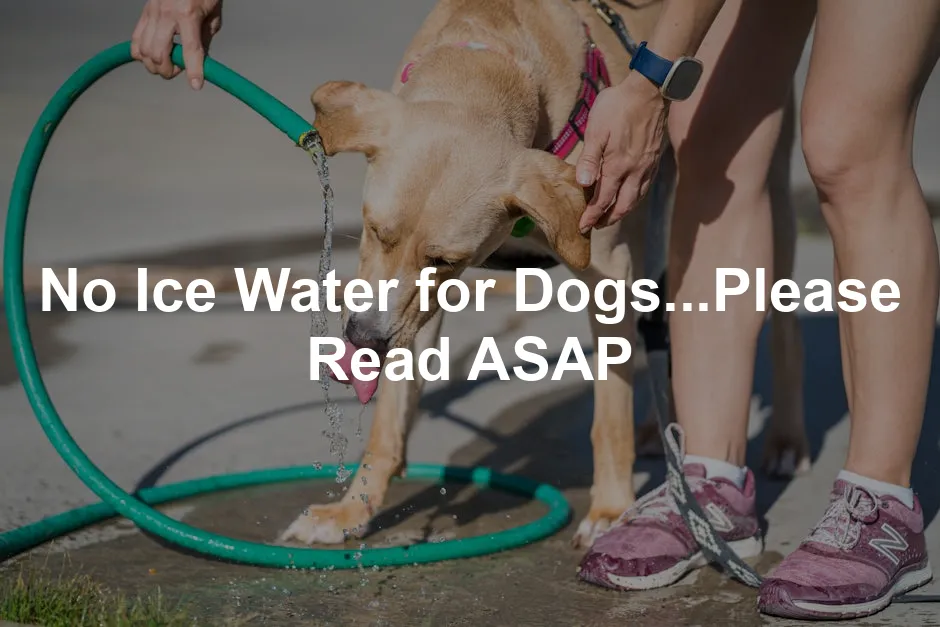Introduction
Have you ever wondered if ice water is safe for dogs? This topic has sparked debate among pet owners. Many believe that ice water can harm dogs, often based on personal stories. This article aims to clarify these myths and provide factual insights about ice water for dogs.
Summary and Overview
So, what’s the real story behind ice water for dogs? The risks often mentioned include bloat and overheating. Bloat, a serious condition, occurs when the stomach fills with gas or fluid. It’s crucial to keep dogs hydrated, especially during hot weather. While some people are concerned about ice water, opinions among experts vary widely. Understanding bloat in dogs can help pet owners make informed decisions about their dog’s hydration.
To ensure your dog stays hydrated on the go, consider investing in a Dog Water Bottle with Bowl. This handy device allows you to provide your furry friend with fresh water anytime, anywhere, without the mess. Hydration has never been so convenient!
Understanding the risks associated with bloat in dogs is essential for dog owners to ensure their pets’ safety.
In the following sections, we will dive deeper into these issues. We’ll explore the risks, expert opinions, and best practices for keeping your furry friend cool and hydrated. Stay tuned for more essential information!
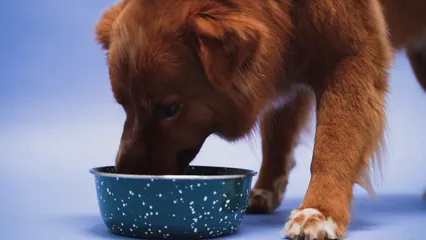
Understanding the Risks of Ice Water for Dogs
The Myth vs. Reality
Have you heard the story of Baran? It’s a cautionary tale that has circulated for years. Baran was a show dog whose owner thought ice water would cool him down after a competition. Unfortunately, this decision led to severe health issues. Baran experienced bloating and was rushed to the vet. This incident sparked fears about ice water being dangerous for dogs.
But here’s the truth: while some dogs have suffered from bloat, it is not solely due to ice water. Bloat, also known as gastric dilation-volvulus (GDV), occurs when a dog’s stomach fills with air or fluid. This condition can be life-threatening but isn’t caused by ice water alone. It can arise from various factors like overeating, drinking too quickly, or stress.
Moderation is key when it comes to water consumption. If a dog drinks excessively, regardless of temperature, it can lead to bloat. So, it’s essential to monitor how much water your dog consumes, especially after exercise. Ice water itself isn’t directly harmful. Instead, the issue arises when dogs gulp large amounts too quickly, which can happen with any water temperature.
Expert Opinions
Veterinarians have weighed in on this debate. Many experts emphasize that ice water isn’t inherently dangerous. Dr. Randall Carpenter, a veterinarian, explains that while large quantities of any water can cause bloat, ice cubes or cold water in moderation is safe. He reassures pet owners that the real concern is how quickly a dog drinks rather than the temperature of the water.
Furthermore, the AKC Canine Health Foundation supports this perspective. They acknowledge that while ice water isn’t a problem in itself, it’s crucial to ensure dogs are not overheated before offering it. Proper hydration is vital, especially on hot days. Experts suggest cooling dogs gradually using methods like wet towels instead of ice water.
In summary, while the tale of Baran raises valid concerns, it’s important to understand that bloat can result from various causes. Drinking too quickly, whether it’s ice water or room temperature water, can lead to issues. So, when it comes to keeping your dog hydrated, focus on moderation and safe practices.

Symptoms of Overheating and Bloat
Recognizing Overheating
Is your dog panting excessively? This could be a sign they are overheating. Overheating can happen quickly, especially in hot weather. Look for these common signs:
- Panting: Rapid breathing can signal heat stress.
- Drooling: Excessive drooling often accompanies overheating.
- Lethargy: If your dog seems unusually tired, it’s time to act.
Cooling methods are crucial when you notice these symptoms. Start by moving your dog to a shaded area or indoors. Offer cool, not ice-cold, water to help them hydrate. A wet towel on their back can also aid in cooling. Remember, gradual cooling is essential to avoid shock.
Understanding Bloat
Bloat is a serious condition that requires immediate attention. It occurs when a dog’s stomach fills with air, fluid, or food, causing it to expand. Symptoms of bloat include:
- Distended abdomen: An enlarged belly is a key indicator.
- Restlessness: Dogs may pace or appear unable to settle down.
- Unproductive retching: Attempting to vomit without producing anything.
Certain breeds, particularly large and deep-chested dogs, are at higher risk for bloat. Breeds like Great Danes, German Shepherds, and Standard Poodles are particularly vulnerable.
If you suspect bloat, don’t wait. Take your dog to the vet immediately. This condition can escalate quickly and may require emergency surgery. Understanding these symptoms can help you act fast, ensuring your furry friend gets the care they need.
Stay vigilant, and keep your dog cool and safe this summer!
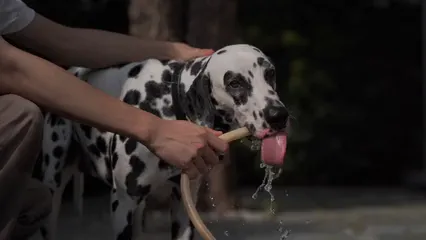
Recommendations for Hydration
Safe Hydration Practices
Keeping your dog properly hydrated is crucial, especially during hot weather. Instead of ice water, consider offering cool, room-temperature water. This can help maintain your dog’s hydration without risking any adverse reactions.
Aim for water that feels cool to the touch, but not cold. Dogs can drink this comfortably, which helps avoid any shock to their system. If you’re worried about hydration, always ensure your dog has access to fresh water throughout the day.
Additionally, you can use alternative cooling methods. Cool towels are a fantastic option. Dampen a towel with cool water and gently wipe it over your dog’s body. This provides relief and helps lower their temperature. You can also set up a fan in a shaded area to keep airflow consistent. This will help your dog stay comfortable and cool. To make things even easier, check out this Portable Pet Fan that can be clipped onto their crate or bed for instant relief!
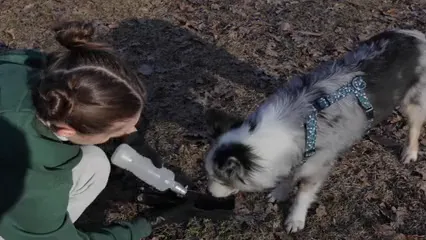
How to Hydrate After Activity
After a fun day of playing or exercising, hydration is vital. Start by offering small amounts of water. Dogs can get overwhelmed if they drink too quickly, especially after being active. Encourage your dog to take sips instead of gulping down large amounts.
Another effective technique is to cool your dog gradually. If your dog seems overheated, take them to a cooler area. Use a wet towel on their inner thighs and underbelly to help them cool down. This method is gentle and reduces the risk of shock to their system.
Remember, it’s essential to monitor your dog’s response. If they seem tired or panting excessively, give them a break. Hydration should be a steady process, not rushed. Incorporating these practices ensures your furry friend stays happy, healthy, and hydrated after their activities.
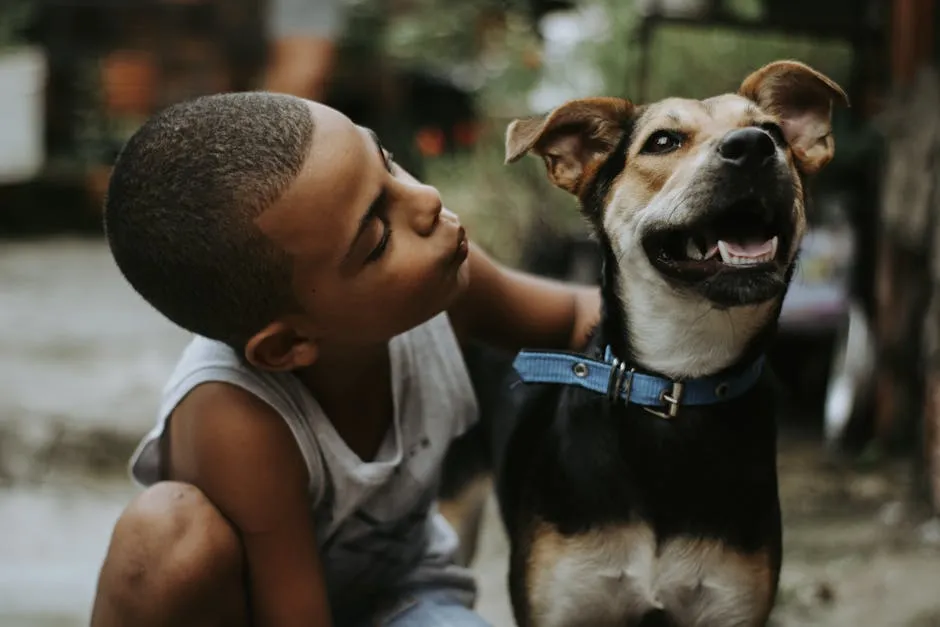
Personal Experiences and Anecdotes
Real-Life Stories
Many dog owners have shared their experiences with ice water, and the stories often highlight both concern and relief. One dog owner, Sarah, recounted a frightening incident with her Golden Retriever, Max. After a long day at the park, she thought ice water would be refreshing. Moments after Max gulped it down, he began to dry heave. Sarah panicked and rushed him to the vet. Thankfully, Max was fine, but the experience taught her a valuable lesson about moderation.
Then there’s Mike, who took a different approach. He had heard horror stories but decided to experiment. He offered his Beagle, Daisy, a few ice cubes after a hot walk. Daisy happily munched away, and surprisingly, she showed no signs of distress. Mike felt relieved but cautious. His takeaway? Each dog reacts differently, and knowing your pet is key.
These anecdotes highlight the emotional rollercoaster pet owners face. The fear of harming our furry friends can be overwhelming. Many learn through trial and error, forging a path towards responsible pet care. It’s essential to consider how your dog responds to ice water, as every pup is unique.
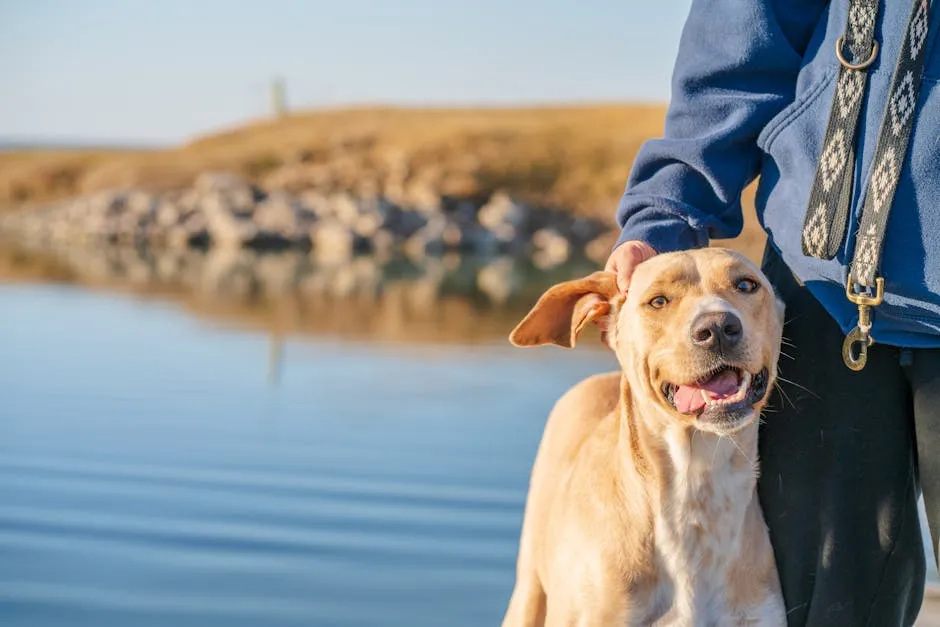
Lessons Learned
The dog-owning community thrives on sharing experiences. Each story contributes to a collective understanding of pet care. Sharing personal accounts not only educates others but also fosters a sense of camaraderie. When dog owners share lessons learned, it emphasizes the importance of responsible pet ownership.
Responsible pet ownership means prioritizing your dog’s well-being. Awareness of potential risks can prevent scary situations. By discussing experiences, we can help each other navigate the murky waters of pet care. Encouraging open conversations about hydration practices, like avoiding ice water, promotes a healthy environment for our furry companions.
So, don’t hesitate! Whether positive or negative, your story could help another pet owner make informed choices. Join the conversation and share your insights!
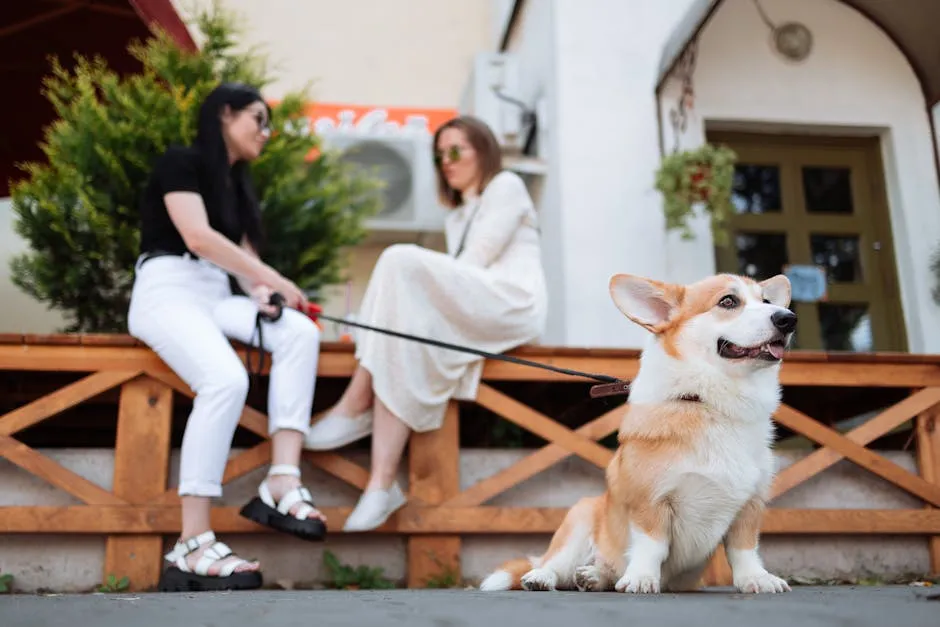
Conclusion
In conclusion, while there are valid concerns regarding ice water for dogs, moderation is essential. Keeping your dog hydrated should always be the priority, and understanding their unique needs is crucial. If you have doubts about your pet’s hydration, consult your veterinarian for tailored advice. Remember, safe practices lead to healthier, happier pets, and a little caution goes a long way! And speaking of hydration, consider giving your dog Pet Hydration Electrolyte Powder for those extra hot days!
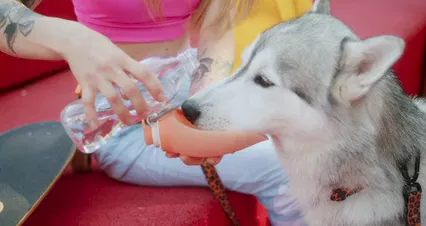
FAQs
Can ice water really cause bloat in dogs?
Bloat is a serious condition, but ice water isn’t the direct cause. Rapid consumption of any water can lead to bloat, especially if a dog is overheated or dehydrated. Bloat occurs when gas fills the stomach, often due to gulping air while drinking. Always monitor how quickly your dog drinks, regardless of the water temperature.
What should I do if my dog is overheating?
If your dog is overheating, act quickly. Move them to a shaded area or indoors. Offer cool water in small amounts. Use a wet towel to gently cool their body, especially on the inner thighs. A fan can also help. Avoid ice water as it can shock their system.
Are ice cubes safe for dogs?
Ice cubes can be safe but come with risks. They can cause dental issues if your dog chews them. Supervise your dog when giving ice, and consider crushed ice or frozen treats instead.
How can I tell if my dog is hydrated?
Look for signs of hydration, like a moist nose and gums. Check if they have energy and are playful. If their skin bounces back quickly when pinched, they’re likely hydrated. Always provide fresh water, especially in hot weather.
What breeds are more susceptible to bloat?
Breeds like Great Danes, German Shepherds, and Standard Poodles are at higher risk for bloat. Their deep chests make them more vulnerable. Watch for signs of bloating, like a distended abdomen, and seek immediate veterinary care if you notice anything unusual.
What are safe cooling methods for dogs?
Instead of ice water, use cool towels or fans to help cool your dog. Ensure they have access to fresh water. Let them lie on cool surfaces, and avoid heavy exercise during the hottest parts of the day.
Should I consult my vet about my dog’s hydration needs?
Absolutely! Your veterinarian can provide personalized advice based on your dog’s age, breed, and health. Regular check-ups can help ensure your pet stays healthy and hydrated.
Please let us know what you think about our content by leaving a comment down below!
Thank you for reading till here 🙂
All images from Pexels

